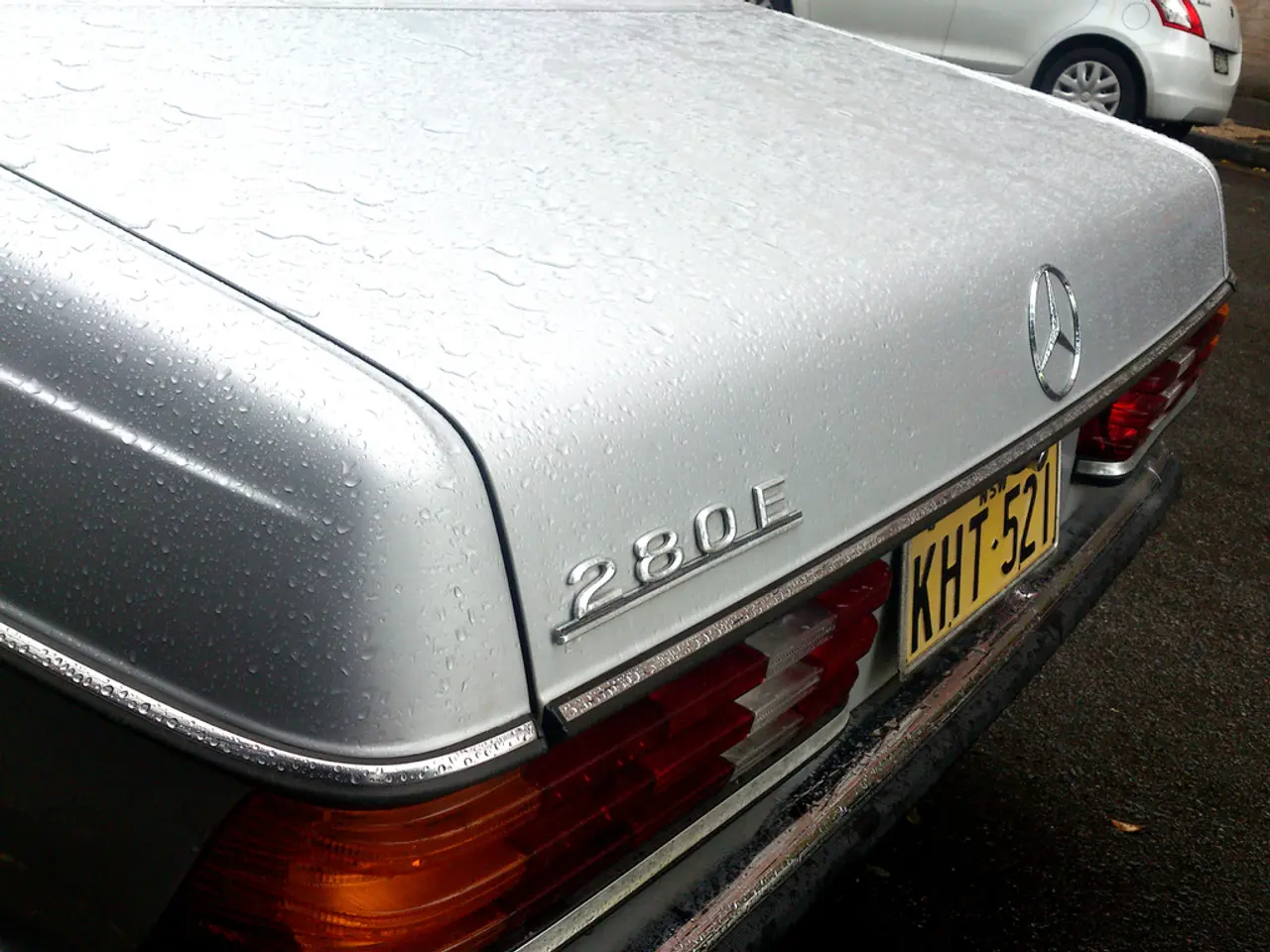USA Car Tariffs Elicits Reactions from Porsche and Mercedes CEOs' Responses
In a strategic move to counter the impact of the 15% tariff on their vehicles exported to the U.S., Mercedes and Volkswagen are adjusting their production policies and investing in U.S.-based manufacturing.
The latest update on the EU-US trade agreement reveals that the U.S. has imposed a uniform 15% tariff on most EU auto exports, while the EU has eliminated its 10% tariff on U.S.-made vehicles entirely [1][5]. Key sectors like aerospace, some chemicals, semiconductors, agriculture, and critical-resource minerals remain exempt from tariffs in both directions, but autos and auto parts are subject to the 15% U.S. tariff with no exemptions for automakers [4].
Mercedes and Volkswagen, facing these tariffs, are adapting by shifting production to the U.S. to mitigate the tariff impact and preserve margins [3]. Volkswagen has reported over €1.3 billion in losses attributed to tariffs and is increasing localized production to offset these costs [3]. Similarly, Mercedes is adjusting supply chains and investment strategies toward U.S.-based manufacturing to bypass tariffs and maintain competitive pricing in the American market.
The CEOs of both companies, Ola Källenius of Mercedes and Oliver Blume of Volkswagen and Porsche, have stated that they no longer expect sector-specific exemptions in the EU-US trade agreement [2]. Blume had hoped for a dollar of tariffs to be waived for every dollar invested in the U.S., but this model now seems to be off the table [2]. Instead, he suggests that investment subsidies could have a similar effect in reducing the future tariff rate [2].
VW is not only adjusting its strategies but also expanding its U.S. presence. The company is building a second plant for its US Scout brand [6]. Volkswagen continues to invest in the U.S., despite the ongoing discussions about the EU-US trade agreement and its impact on their investments [7].
The CEOs' conclusions were reached after talks with the US Department of Commerce [8]. The details of the trade agreement are not yet finalized [9], and the companies remain open to discussions about the agreement [9]. The quota model proposed by Mercedes, which offsets exports against imports from the EU, is not currently being considered for VW [10].
In summary, European automakers are focusing on shifting production policies to the U.S. to mitigate the impact of the 15% import tariff they face on exports to America. The EU supports U.S. automakers by removing their tariffs, further intensifying competitive pressures on European brands in the U.S. market [1][3][5].
References: 1. EU-US trade agreement: What's in it for the auto industry? 2. Volkswagen CEO Oliver Blume: We don't expect sector-specific exemptions in EU-US trade agreement 3. Mercedes and Volkswagen shift production to U.S. to mitigate tariff impact 4. EU-US trade agreement: What's in it for the auto industry? 5. EU-US trade agreement: What's in it for the auto industry? 6. Volkswagen to build second US Scout plant 7. Volkswagen continues to invest in the US despite ongoing EU-US trade talks 8. Volkswagen CEO Oliver Blume: We don't expect sector-specific exemptions in EU-US trade agreement 9. Volkswagen continues to invest in the US despite ongoing EU-US trade talks 10. Volkswagen CEO Oliver Blume: We don't expect sector-specific exemptions in EU-US trade agreement
- In an attempt to reduce the financial burden of the 15% tariff, Mercedes and Volkswagen are investing in U.S.-based manufacturing, shifting their production policies for their vehicles.
- Volkswagen, struggling with losses of over €1.3 billion due to tariffs, is increasing U.S.-based manufacturing to offset these costs and preserve margins in the business sector.




